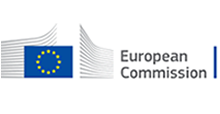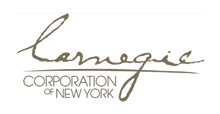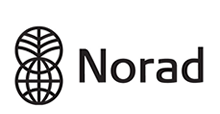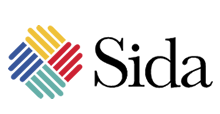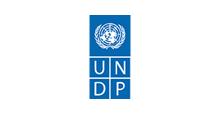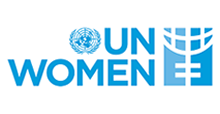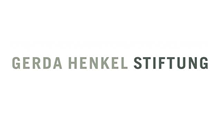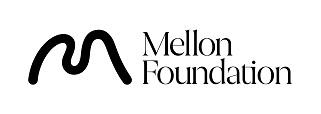The College of Humanities and Social Sciences constitutes the School of Social Sciences; School of Psychology; School of Women and Gender Studies; School of Languages, Literature and Communication and the School of Liberal and Performing Arts. In addition to the schools, the College operates one institute and two centres - the Makerere Institute of Social Research and the Centre for Language and Communication Services as well as the Centre for Psychological Services.
The origin of the College dates back to 1922 when the Faculty of Arts was established to train clerks, administrators and teachers at the then Makerere College. Subjects offered at the Faculty included history, geography and all branches of English. English language was made compulsory for all students at the College who were not offering English as a major subject.
In 1944, higher courses in Arts were introduced at Makerere intended not only for teachers but also men entering administration or commerce. The introduction of the higher courses became the basis of later degree courses which was an important step in the evolution of Makerere College from a place of vocational training towards a university.
Social Studies occupied a central place to give focus for both historical and geographical studies. All students on entry had to pursue a year’s course in social studies, designed to keep them informed about their own countries.
When the Inter-University Council Delegation of June 1949 recommended that Makerere enters special relations with the University of London, degree courses were introduced in the college faculties including the Faculty of Arts.
Decree No6 of Council of November, 1954 defined the faculties and schools in accordance with the separation of the Faculty of Education from the Faculty of Arts and the making of the School of Art independent of any faculty. Throughout the 1950s, the Faculty of Arts established departments familiarised themselves with the degree structures. The History Department embarked on a plan to train a promising African to return as lecturer in African History. The English Department taught English to all new entrants and the Geography Department hosted a symposium in 1955 held under the auspices of the International Geography Union. The English Department made the Hill interesting, especially by presenting plays. The first full-length play to be staged in the newly equipped Main Hall in 1950 was entitled “A Midsummer Night’s Dream”. These were the days of prominent writers Okot p'Bitek and Ngũgĩ wa Thiong'o.
By 1957, with the availability of holders of Higher School Certificate or its equivalent, Makerere College had become ready to begin Honours Degrees in the Faculty of Arts. In 1957, honours courses in English, History and Geography were begun. The first history honours students were required to learn French.
In 1959, the first honours students sat their final examination and all passed. History admitted its first direct entry honours students. Geography received a visiting professor and it could be offered for the Bachelor of Science special as well as for the Bachelor of Arts Honours. In 1960, history came next to Geography in admitting a post graduate student. Geography had three students. By 1967, the Faculty of Arts was also offering programmes in Religious Studies, Literature, Philosophy, Commerce, Political Science, Sociology and Law.
Social Sciences
The teaching of Social Sciences at Makerere has its genesis in the compulsory first year course administration introduced in 1939, mainly designed to give students an insight into the social and economic setting in which they would practice their profession. As a Department of Social Studies which was part of Faculty of Arts, it taught Economics, Political Science and Sociology.
A fully-fledged Faculty of Social Sciences was created in 1963 to coincide with the creation of the University of East Africa with Constituent Colleges at Makerere, Dar es Salaam and Nairobi. It comprised of the departments of Economics, political science and public administration and sociology which included the social work and Community Development Training Scheme. From 1963, however, the faculties of Arts and Social sciences continued to be administered under one Dean until the mid-1980s when they were separated to ease management.
School of Women and Gender Studies
When the Department of Women’s Studies was established in 1991, the core aims of the department were to advance the discipline of gender studies and to train a cadre of gender specialists for the region. These aims have over the years become the department’s drivers for programme expansion and internationalization of her activities. In the mid 1990s the Department changed its name to Women and Gender Studies and in 2010 the department transformed to a School of Women and Gender Studies, under the College of Humanities and Social Sciences. The immediate goal of the School is to stimulate and propagate intellectual discourse in Gender Studies, Feminist Science, Women’s and Men’s Studies; and to provide new strategies for research in these areas. The long term goal is to contribute towards the creation of an environment in which men and women function freely and fairly. The School contributes to public policy processes, socio-cultural, political and educational developments in the country.
Makerere Institute of Social Research
When Makerere University became a national University in 1970, the former East African Institute of Social Research (EAISR), became Makerere Institute of Social Research (MISR) under the Faculty of Arts and Social Sciences. EAISR was one of the three institutes that had been set up after the Second World War on the recommendation of the Colonial Social Science Research Council of London, England to fulfil the special function of developing social sciences research in the British colonial territories. MISR eventually became an autonomous institute in 1994 and was charged with the role of strengthening social sciences research at the University. Since its inception, MISR has had exceptional leadership, among whom were: W.H. Stanner as first Director, Audrey Richards, Tom Llyod Fallers, Aidan Southall, Dan Mudoola and Apolo Nsibambi. The current Director of the Institute is Prof Mahmood Mamdani.
Institute of Psychology (School of Psychology)
The idea of Psychology becoming an institute was revived in 1990 and achieved in 1997 but became operational in 1999. Makerere University had earlier on in 1973 attempted to set up an Institute of Psychology as a single commonhome for psychology teaching and practice with the desire to create an environment for nurturing consensus on “professionalizing” psychology in the nation, sub region and region. This was because of the overwhelming need for psychological services in the country and region at large.
The Institute of Psychology was made one of the schools under the College of Humanities and Social Sciences following the transformation of the Makerere into a collegiate university in 2011. It has two departments namely; The Department of Mental Health and Community Psychology and the Department of Educational, Organizational and Social Psychology. It has two undergraduate programmes (Bachelor of Industrial & Organisational Psychology, and Bachelor of Community Psychology), a Postgraduate Diploma in Counseling, and three masters programmes (Master of Arts in Counseling, Master of Organisational Psychology, and Master of Science in Clinical psychology)
Restructuring at Makerere: College of Humanities and Social Sciences formed
The Faculties of Arts and Social Sciences, the Institutes of Psychology and Economics, and the Makerere Institute of Social Research started the process of college formation in 2002 by establishing a committee referred to as Pentaplan, with support of seed grant from Ford Foundation. Through the Pentaplan Project, the units formed the College of Humanities and Behavioral Sciences; however the structure was not implemented due to uncertainties at the time. In July 2006, the Makerere University Council approved “the Makerere University Statute for Constituent Colleges”. In 2008 and 2009 these units revived discussions on the process of forming one college. In 2008 the University Research, Administrative and Financial Reforms Committee (URAFR) was formed to propose reforms and transformations in the university. Consequently URAFR proposed to Senate that the current Faculties, Schools and Institutes merge to form eight (8) colleges.
The proposed College of Humanities and Social Sciences brought together some of the largest and the oldest units in the University: Faculty of Arts, Faculty of Social Sciences, the Institute of Psychology and the Makerere Institute of Social Research. Given the uniqueness of Humanities and Social Sciences and the niche each unit occupies in the university, five schools and one institute were formed. These are the School of Languages, Literature and Communication; the School of Women and Gender Studies; the School of Liberal and Performing Arts; the School of Psychology and the School of Social Sciences. In addition, the College has one institute and two centres that promote knowledge transfer partnerships and provide services. These are the Makerere Institute of Social Research, the Centre for Psychological Services and the Centre for Language and Communication Services. The guiding principles in the creation of schools were; the relatedness of the disciplines; historical, ideological and philosophical aspects of the discipline; uniqueness of the discipline; organizational efficiency and financial viability.
Currently the College of Humanities and Social Sciences offers day, evening and external study programmes with a student body of over 8000 undergraduates and postgraduates. The College boasts of 47 undergraduate and postgraduate programmes as well as 28 staff at the rank of professor and associate professor and 270 lecturers. It is a very active centre for research.

